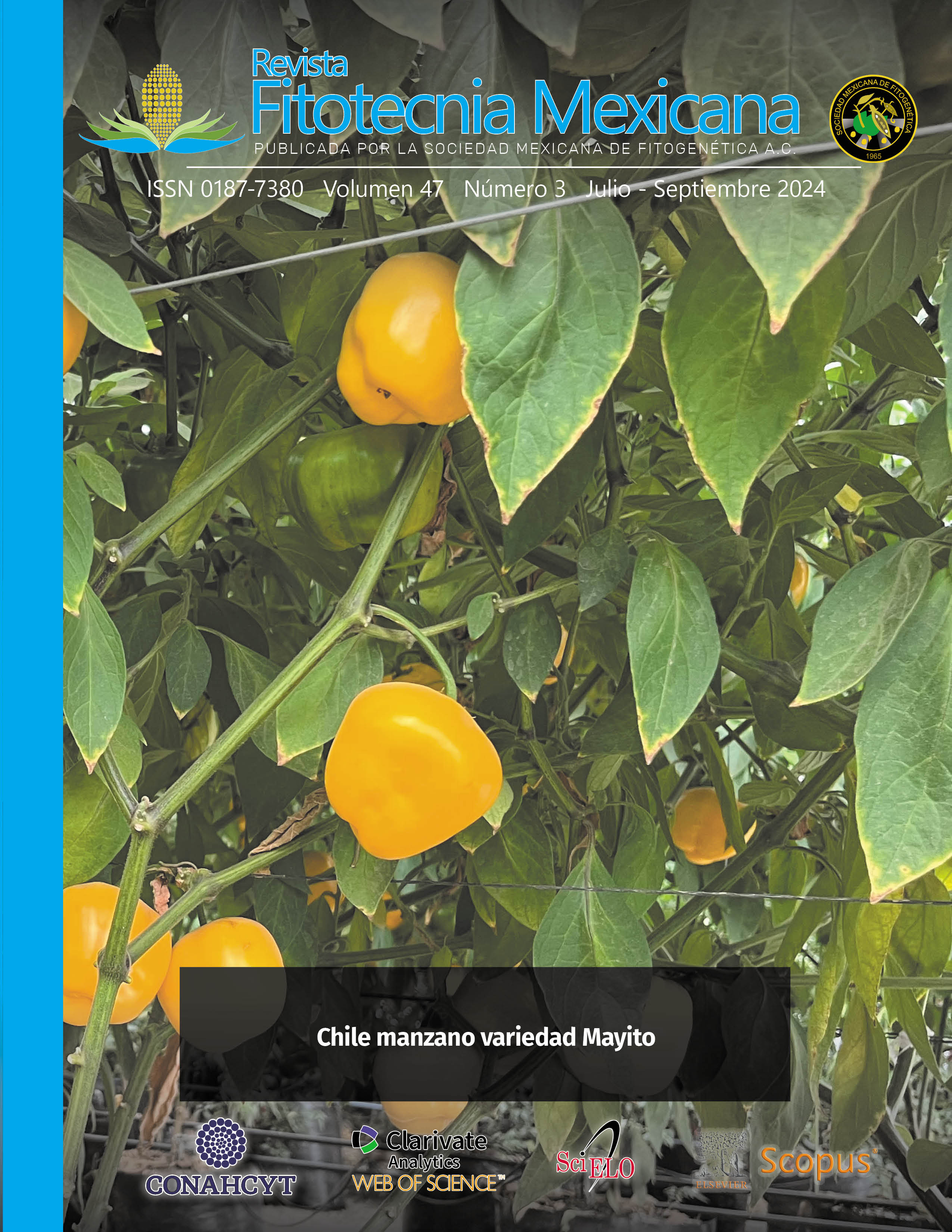BIOSTIMULANT EFFECT OF MENADIONE IN THE CONTROL OF Candidatus LIBERIBACTER SOLANACEARUM IN TOMATO
Main Article Content
Abstract
Tomato is one of the most consumed vegetables worldwide, and Mexico occupies the first places in exports. Pests and diseases that attack tomato compel producers to use pesticides, causing environmental pollution. New products are currently being sought that are environmentally friendly but effective for pest and disease control; a viable option is menadione sodium bisulfite (MBS). The objective of this research was to determine the biostimulant effect of MBS in tomato plants infected with Candidatus Liberibacter solanacearum (CaLso), as well as to evaluate the incidence and severity of the disease in the plants. The experiment was carried out under greenhouse conditions on tomato plants cv. Floradade treated with MBS concentrations before inoculation. Eight treatments were established, four inoculated with CaLso and treated with MBS (55, 80, 100 and 500 ppm), one with chemical treatment and inoculated, one inoculated control and two treatments without inoculation, one as absolute control and one treated only with 500 ppm MBS. CaLso was then inoculated, and MBS applications were performed at 15-day intervals after inoculation. Agronomic traits, incidence and severity of the disease were evaluated. MBS reduced severity from 23.5 to 41.7 % in tomato plants inoculated with the CaLso bacterium, and increased the agronomic traits of plant height, fresh weight and dry weight of plant and root, firmness and Brix degrees. Results showed that MBS can be integrated for the management disease caused by CaLso in tomato.

